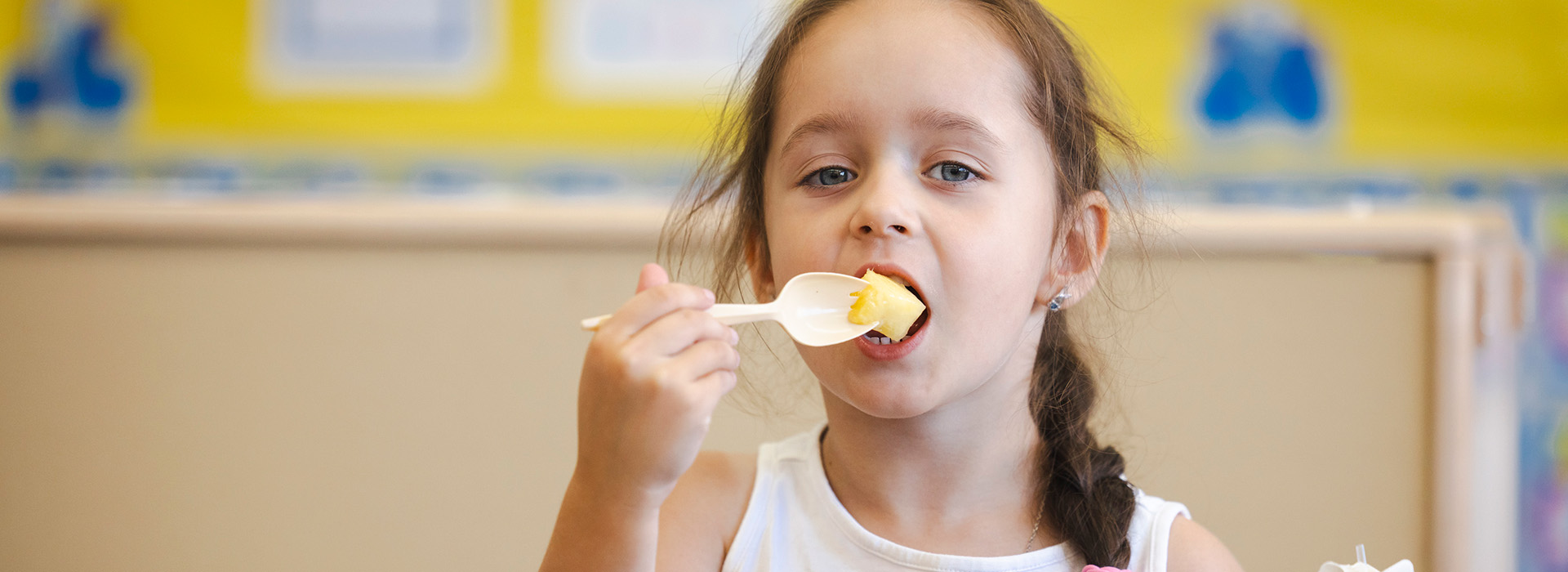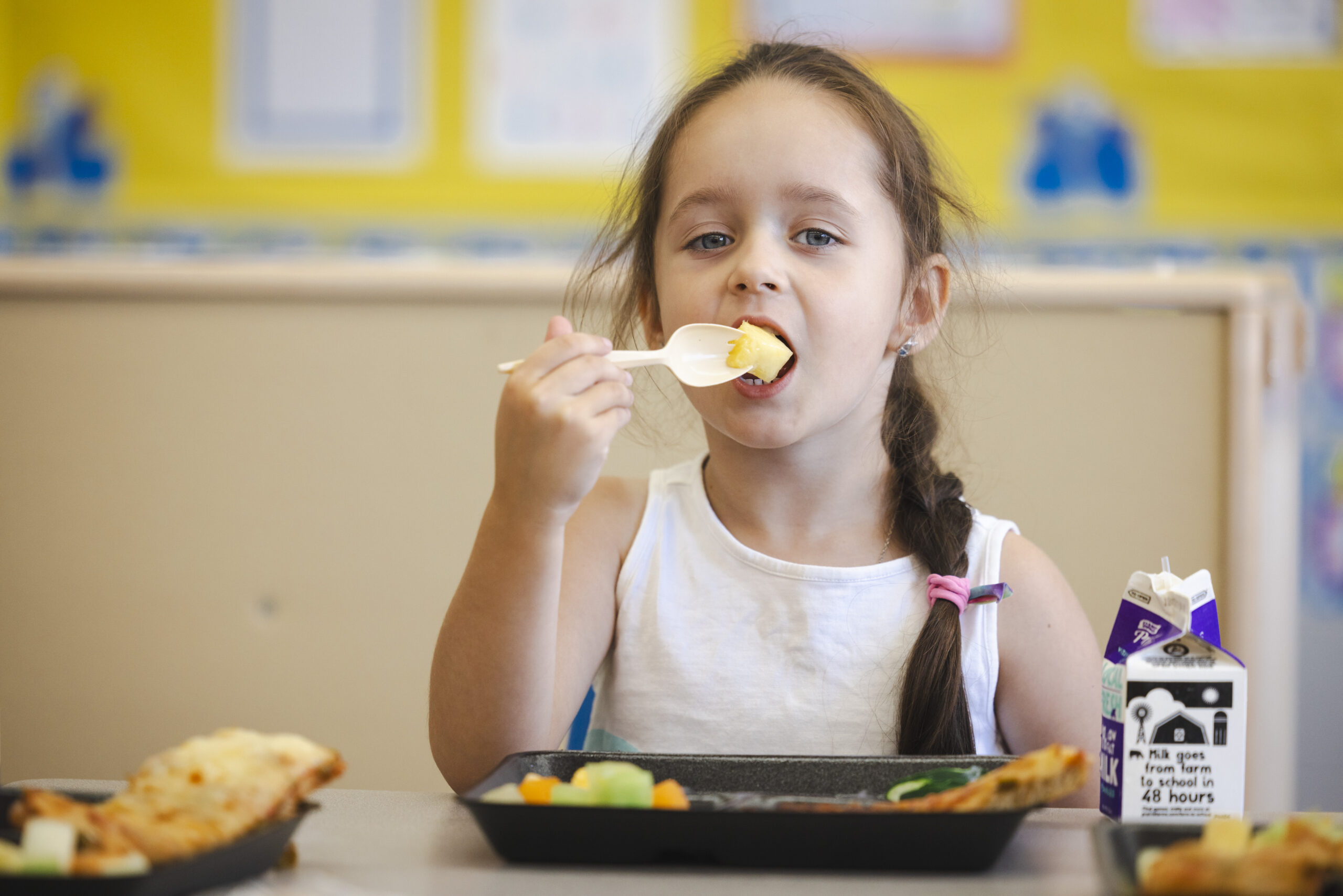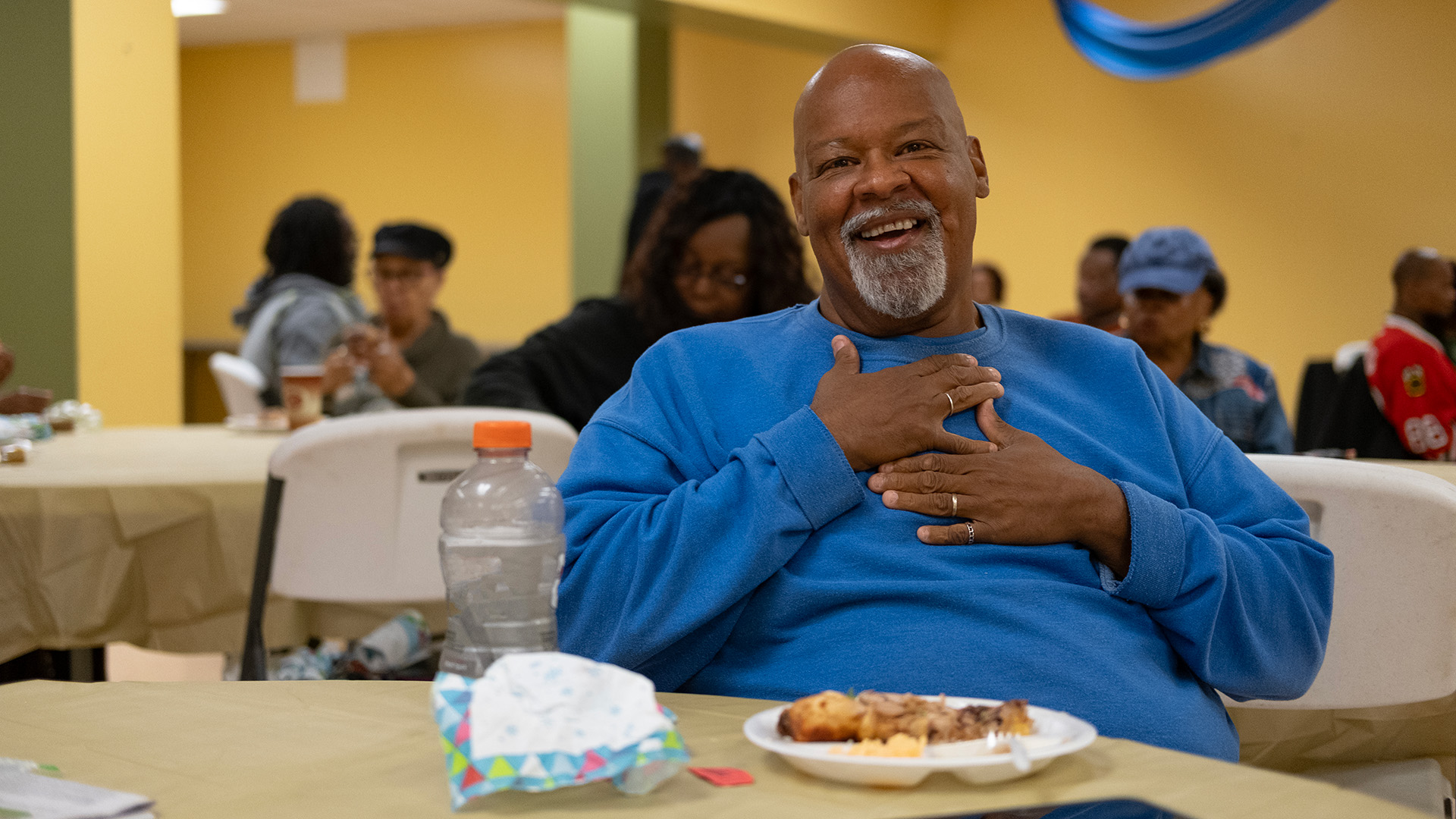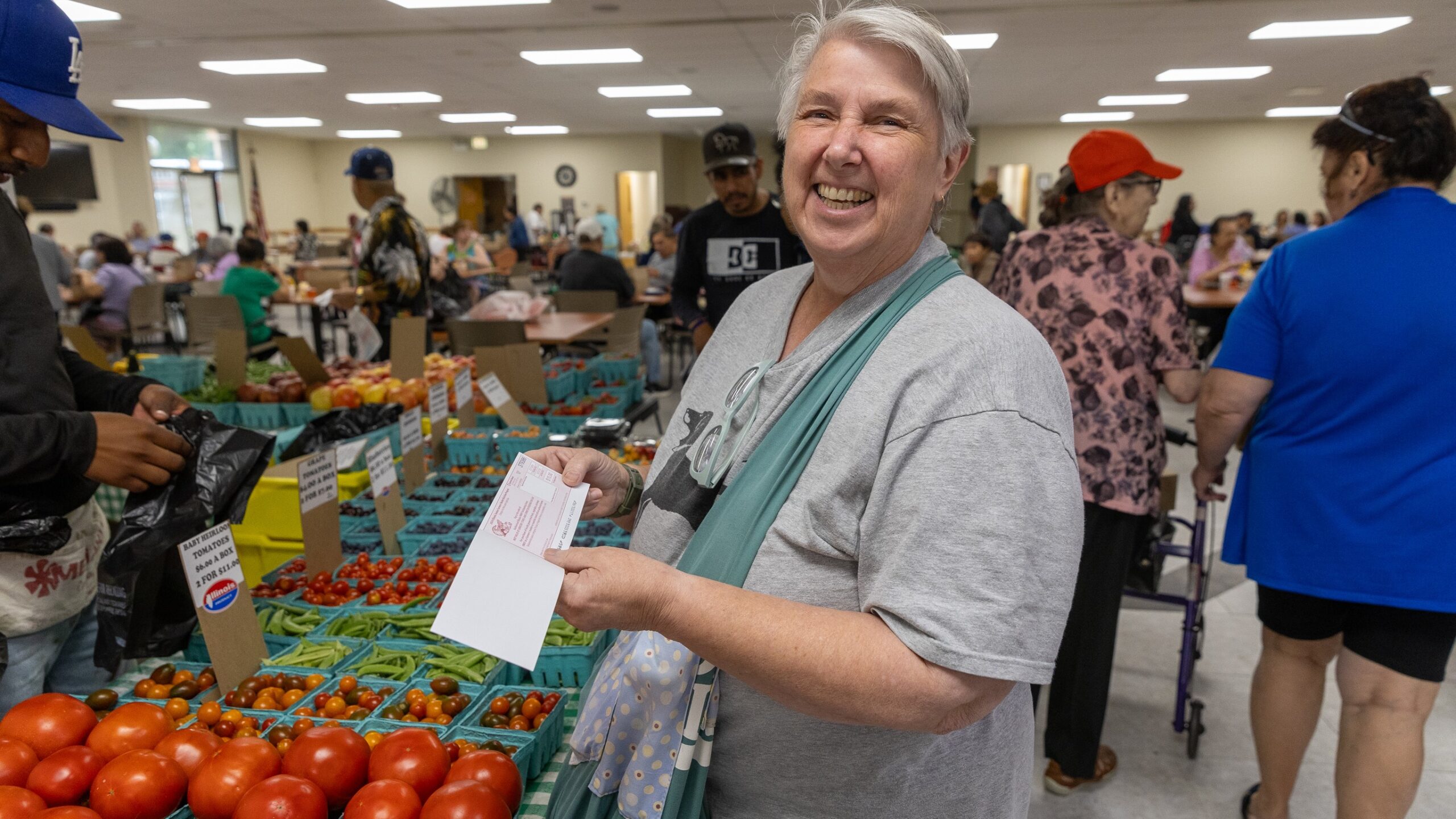
The Power of Feeding Children
Portia Rogers, 31, is grateful that her 8-year-old daughter, Isis, likes eating fruits and vegetables. Unfortunately, these healthy options are expensive. While a medical condition prevents Rogers from working, she does her best to provide for her daughter on her disability benefits.
For most of the year, Isis receives free breakfast and lunch at school. “I’m happy she can focus on her schoolwork and not her growling stomach,” Rogers said.
But when classes end and summer begins, Rogers, along with thousands of other parents across Chicago and Cook County, faces the challenge of providing two additional meals per child each day compared to during the school year.
For families already struggling to make ends meet, this added expense can be overwhelming, with devastating consequences. A lack of proper nutrition can have serious effects on growing children, leaving them without the energy or focus needed for healthy development.
This is the reality for many families in Chicago, where 21 percent of households with children are food insecure. Approximately 40 percent of families with children in Chicago receive SNAP (Supplemental Nutrition Assistance Program) benefits, indicating both the need and the importance of food assistance programs among families across our community.
Fortunately, Isis receives meals through the Chicago Heights Public Library’s summer program, one of more than 150 meal programs throughout Cook County that the Food Depository supports each summer. These programs help bridge the gap when school is out, ensuring children have access to nutritious meals.
“I love it here. My favorite food that I get here is the pozole. It’s so good, I would eat it every day.”
Susan Rizo, 11, Club One attendee
Thanks in part to anti-hunger advocates throughout the country, including those at the Food Depository, in 2023 the federal government passed Summer EBT (electronic benefits transfer), the first new federal nutrition program in nearly 50 years. Illinois was among the first states to commit to offering the program in summer 2024.
The Food Depository played a key role in spreading the word about Summer EBT, partnering with the Illinois Department of Human Services (IDHS) and the Illinois State Board of Education (ISBE) to ensure that families were aware of this new resource.
Summer EBT provided qualifying families with school-aged children an electronic benefits transfer card to purchase groceries during the summer months. In doing this, the program was estimated to help generate $270 million in economic activity in Illinois, while helping children maintain consistent access to nutritious food over the summer.
Chicago mom Rogers was grateful for the extra support this summer. “It will help me keep up Isis’ good eating habits,” she said, acknowledging that the program will help set her daughter up for a healthy future.
In addition to Summer EBT, the Food Depository also advocated for and raised awareness about the importance of funding the Special Supplemental Nutrition Program for Women, Infants, and Children (WIC), which was at risk of being defunded this year.
WIC provides essential nutrition assistance to low-income pregnant women, new mothers and children under five, ensuring they have access to healthy foods, nutrition education and healthcare referrals. Without funding, millions of vulnerable families nationwide, including roughly 9 million participants who rely on WIC each month, would have faced food insecurity. Thanks to the efforts of advocates, Congress approved WIC funding in March, securing continued support for women and young children in need.
This spring, more than 30 advocates representing the Food Depository traveled to Springfield, Illinois, to advocate for funding to create a grant program to help schools implement or expand Breakfast After the Bell programs, which are a proven model to boost school breakfast participation. This investment is especially important given that Illinois ranks 35th among all states in school breakfast participation and there is a clear link between breakfast and health and academic outcomes.
“All students deserve to be able to eat a healthy meal,” said Laverne Horgan, 85, coordinator of Church of the Holy Spirit Food Pantry, a Food Depository partner. Our advocacy made a difference, and the Breakfast After the Bell school grant program was funded at our requested $300,000.
In addition to our advocacy work for youth, the Food Depository also continued the important work of serving children meals through various summer and after-school programs. Through these programs, the Food Depository distributed more than 430,000 meals to more than 42,000 youth in fiscal year 2024.
One of those youth is Susan Rizo, 11, who regularly attends the after-school program at Club One, the original Union League Boys and Girls Club of Chicago, where she receives a daily meal and snack provided by the Food Depository.
“I love it here,” said Susan. “My favorite food that I get here is the pozole. It’s so good, I would eat it every day.”
“The fact that we have consistent healthy meals (from the Food Depository) for all our program dates means so much because it helps us create a sustainable structure,” says Anabel Hernandez, program director of Club One.
“We can do more for the kids because we don’t have to worry about where their food is going to come from. It is a huge help. Because of the Food Depository, we can spend our time doing things like leading programs and creating relationships with the kids. We are very grateful.”
The Food Depository and our network of partner food pantries also provide groceries and other resources for thousands of families with children every day.
The Food Depository is proud to champion programs and initiatives like these, that not only address food insecurity but also contribute to healthier futures for children across Chicago.




